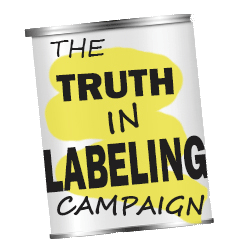“Propaganda” was the first thought that entered my mind. Propaganda touting the safety of monosodium glutamate. But from Michigan State University?
“People associated it with some unpleasant symptoms….But scientists really haven’t really been able to reproduce those symptoms reliably.”
Those are words straight from the playbook of the glutamate industry coming as a sound bite from MSU’s public radio station WKAR (and NPR) on its “Serving Up Science” program in a segment titled: “Umami: The Most Complex Taste.”
It’s not unusual for the glutamate industry to place stories with struggling freelance writers or others who need work that can be cited – people who are pleased to take articles or story lines that are handed to them (with or without remuneration), and run with them without checking out their sources or their facts.
It’s not unusual for the glutamate industry to have food scientists who have produced studies allegedly demonstrating the safety of monosodium glutamate write or speak on the safety of their product. But Michigan State Assistant Professor Robin Tucker, quoted above, doesn’t fit the bill. She presents a most impressive bibliography, but there’s nothing that I saw there that even shows an interest in glutamate, monosodium glutamate, or excitotoxins. So where did she get the idea that “people really don’t have much to worry about when it comes to MSG”?
Perhaps I understand how Tucker got involved. She’s on the faculty of the Department of Food Science & Human Nutrition, where, with close to 40 faculty members, she must know many who are Food Technologists, professionals dedicated to creating and improving food products. And of those, no doubt many will belong to the Institute of Food Technologists (IFT), some of whose members profit from promoting the fiction that monosodium glutamate is a harmless food additive.
Dr. Tucker may even know Andrew G. Ebert, Ph.D., a highly respected pharmacologist and toxicologist who once served as chairman of Ajinomoto’s International Glutamate Technical Committee (IGTC). It was Ebert (an IFT Fellow since 1996) who provided aspartame-laced placebos to researchers conducting studies he designed to be used as evidence that monosodium glutamate is a harmless food additive.
Another IFT member, who might have indirectly influenced Tucker, is Steve Taylor. Taylor is Co-Founder and Co-Director of the Food Allergy Research and Resource Program, and Professor in the Department of Food Science and Technology at the University of Nebraska. Taylor became an IFT Fellow in 1986. Although having worked for Ajinomoto for many years, Taylor does not publicly acknowledge their relationship.
What I don’t understand is how NPR could carry the message that “people really don’t have much to worry about when it comes to MSG,” delivered by a person with no expertise in glutamate toxicity.
This past Monday I called Dr. Nancy Turner, Professor and Chair of the Department of Food Science and Human Nutrition at Michigan State University, and left a message asking how the damage done by Robin Tucker’s statements in this broadcast were going to be redressed.
On Wednesday Turner returned my call. I spoke of the data that demonstrate that the free glutamic acid in monosodium glutamate is excitotoxic – that in the unborn and the newborn it kills brain cells, destroys that part of the endocrine system responsible for weight control and human reproduction, and causes adverse reactions such as migraine headache, a-fib, and seizures in older humans.
I spoke of the flawed research of the glutamate industry wherein excitotoxic aspartic acid (in aspartame) was used in the placebos of industry-sponsored double-blind studies. I went so far as to use the word “fraud” in describing the research that claimed to have demonstrated that monosodium glutamate is a harmless food additive – to which Dr. Turner responded saying that everyone is entitled to their own opinions, and that I was expressing my interpretation of the data.
She further informed me that placebos had to be balanced with test material, and since test material in the studies being discussed contained amino acids, amino acids would appropriately be used in placebos. My statement that the amino acid used in the placebos used in industry-sponsored studies of the safety of monosodium glutamate caused the same reactions as those caused by monosodium glutamate was ignored.
Since I had written to the show’s authors, Sheri Kirshenbaum and Karel Vega, as well as Dr. Tucker when it first appeared and received no response, I tried to communicate with NPR. There I found that the best I could do was put my letter in a box called “submit a correction.”
And so this blog.
There seems to be no shortage of people who don’t read the medical literature and don’t realize that there is an abundance of research that demonstrates that free l-glutamic acid (the manufactured free glutamic acid in monosodium glutamate) is toxic – that it causes brain damage, endocrine disorders (obesity and infertility), a-fib, migraine headache, asthma, seizures and more.
But I shouldn’t have to tell that to the “Serving Up Science” team. Just a few weeks before the umami piece appeared, they published “The Importance of Reputable Sources,” which explained that while it’s easy to get information online, “finding the correct information is a bit harder.”
Perhaps that’s something to keep in mind when using NPR as an authoritative source.
Adrienne


